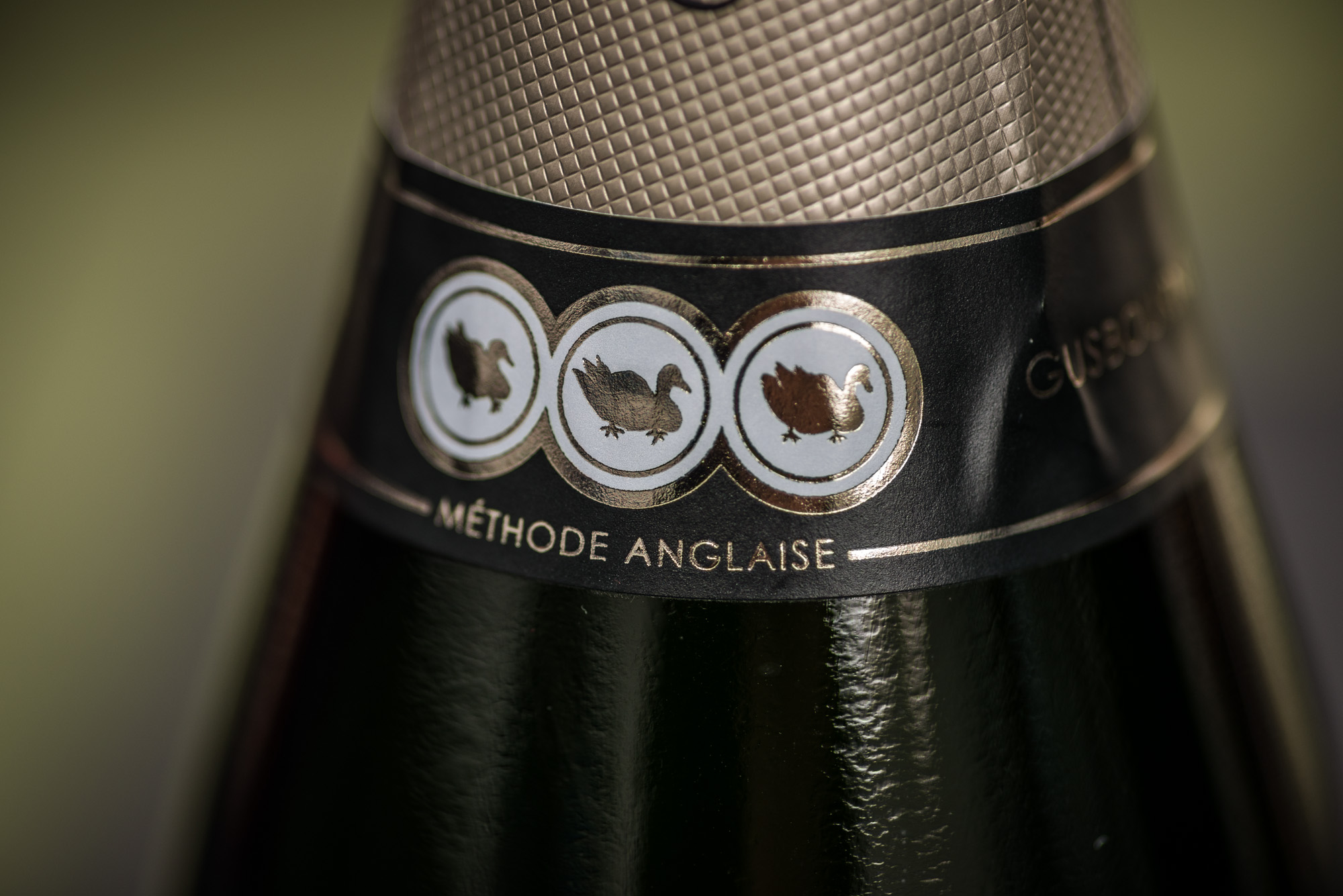Gusbourne, Blanc de Blancs, 2007
It's so annoying not to be able to call it Champagne, when it is Champagne. This statement about English sparkling wine comes from the Crown's "resident wine expert", the Duchess of Cornwall. It highlights a sparkling rivalry between England and France where the Frenchmen have law and reputation on their side: no matter whether you make sparkling wine in the same way (Méthode Champenoise) and to the same quality only fizz from the Champagne region may bear that prestigious name. The plucky Brits have no chance winning this battle but they do at least have a battle cry: the Méthode Champenoise actually is an English method.

The banner under which this battle cry is made is that of the three geese of Gusbourne, and it came to me on a bottle of fantastic sparkling wine.
Before I get into the wine a few words about the "Méthode Anglaise". This claim goes back to my favourite century and an interesting bunch of clever nut cases: the men who founded the Royal Society. Amongst them was a chap called Christopher Merret whose main interests seem to have been making glass and making lists of birds. In 1662 he presented a paper called "Some Observations concerning the Ordering of Wines" to the Royal Society. Here he describes the process of adding sugar and molasses to wine to induce a secondary fermentation to generate bubbles - the French only discovered this method a few decades later. Amusingly though instead of celebrating this with a truly bold battle cry for an "English Method" Gusbourne give us a deferential "Méthode Anglaise" that in its choice of language still recognises French dominance.
There is nothing deferential in the quality and ambition of English sparkling wine though; the production may be tiny but even so Gusbourne and other producers have won enough international awards to demonstrate they mean business. The English drive for quality sparkling wine production is helped by soil and climate conditions quite similar to the Champagne - Gusbourne Estate is located in Kent, just a few miles from the coast. On 20 ha they are growing Chardonnay, Pinot Noir and Pinot Meunier, the classic sparkling grape varieties, and amongst the wines they produce is this Blanc de Blancs (made from Chardonnay only).

In my quest to enlighten the Germans about English wine (this is a sub-quest from the Wine Rambler's mission to enlighten the English about German wine) I took a bottle of the 2007 with me to a recent Wine Rambler meeting in Munich. "Smells great" was the first reaction, and I have to agree: a charming, enticing and appealing bouquet featuring apple, blossom, yeast (think Hefezopf, a German bread with some similarities to brioche), spiced with lovely kohlrabi. The vegetable spicing is also present on the tongue where it enhances the fruit flavours (green apple and ripe quince stand out), subtle caramel notes and refreshing mineral and citrus finish. As you would expect from such a sparkling wine the Gusbourne has yeast and toasty flavours, but it is more about the fruit harmony with delicious elements of a still wine shinning through. The acidity is very expressive and the whole comes together in a balanced, very round (but not at all sleepy) wine that gave me one of the most enjoyable experiences with sparkling wine ever.
Co-Rambler Julian remarked: Quite perfect in its way. Champagne-purist may find the yeast and toasted brioche notes too subtle and maybe miss the edge of mineral depth, but I loved the way the fruit is brought out. It's one of the great misunderstandings in the recent history of civilisation that sparkling wines are thought of as by-the-glass standalone wines, when they are obviously perfect with food. I would have loved this with Torsten's scallops on a bed of fruity Sauerkraut with quince.
Whatever the method of making it is called, can we have more of it please?

Comments
recent history of civilisation
If this wine made me say something beginning with "It's one of the great misunderstandings in the recent history of civilisation...", then it must indeed have been great. Which I clearly remember it to have been.